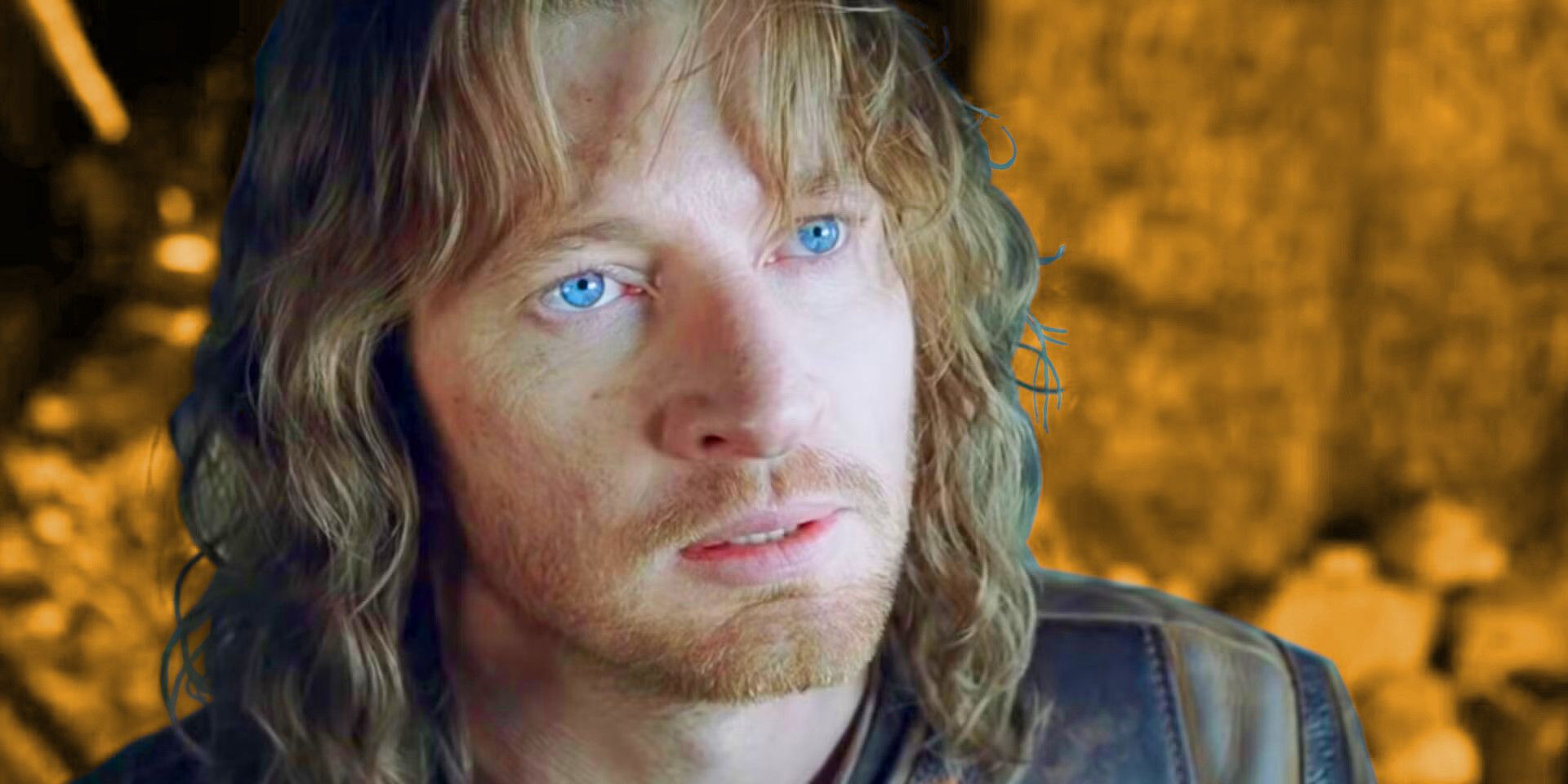
His father’s disdain dealt a major blow to Faramir’s self-esteem. His mother, Finduilas, died when he was young, so after Boromir’s death, his only living family member in the films was someone who despised him. Faramir’s desperation to prove himself to his father led him into a self-destructive spiral, but throughout The Lord of the Rings: The Two Towers and The Lord of the Rings: The Return of the King, he underwent an arc of discovering his self-worth. Against all odds, Faramir survived the War of the Ring, and his story came to an uplifting end.
Faramir Thought the One Ring Could Win Denethor’s Respect
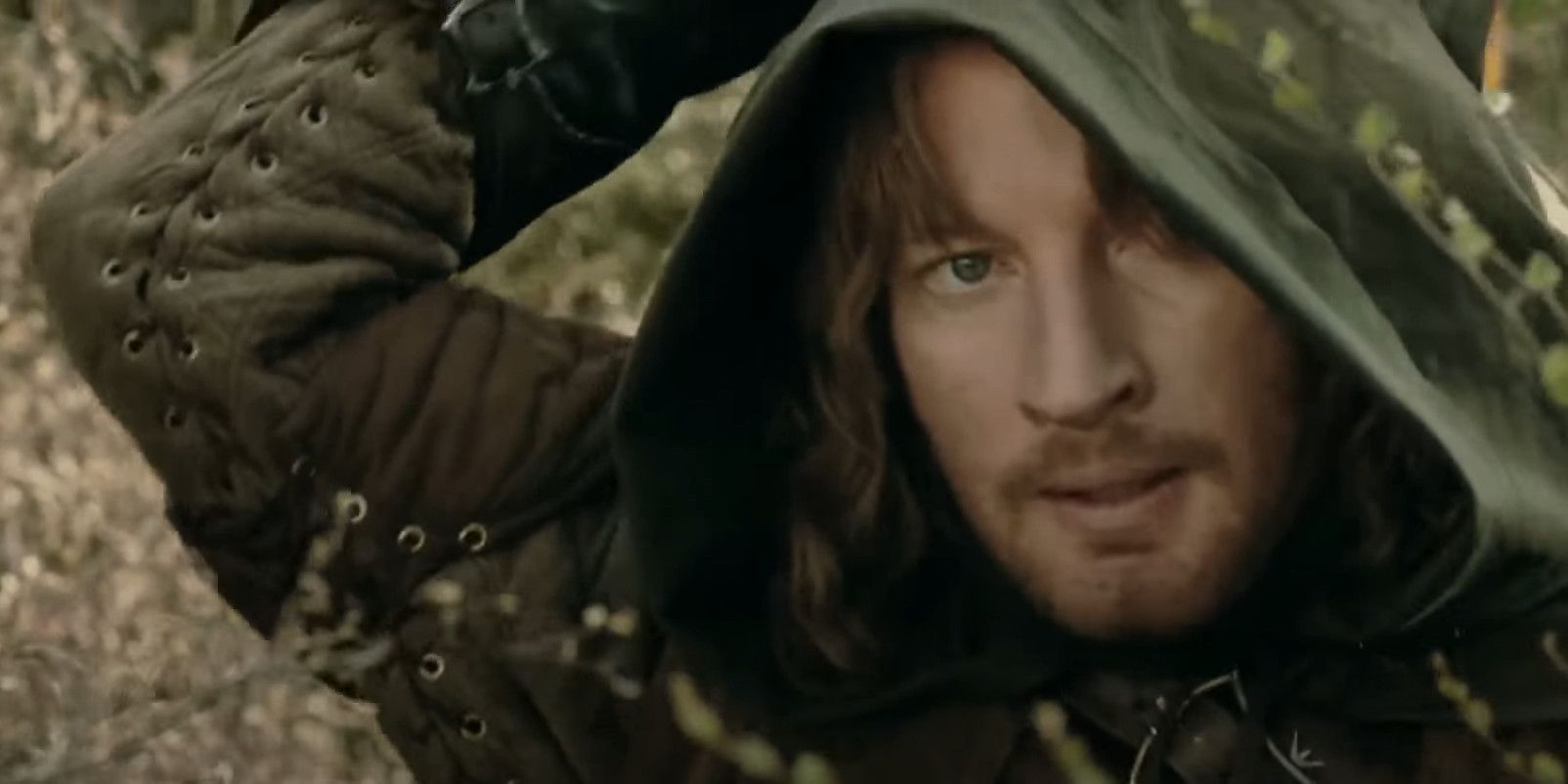
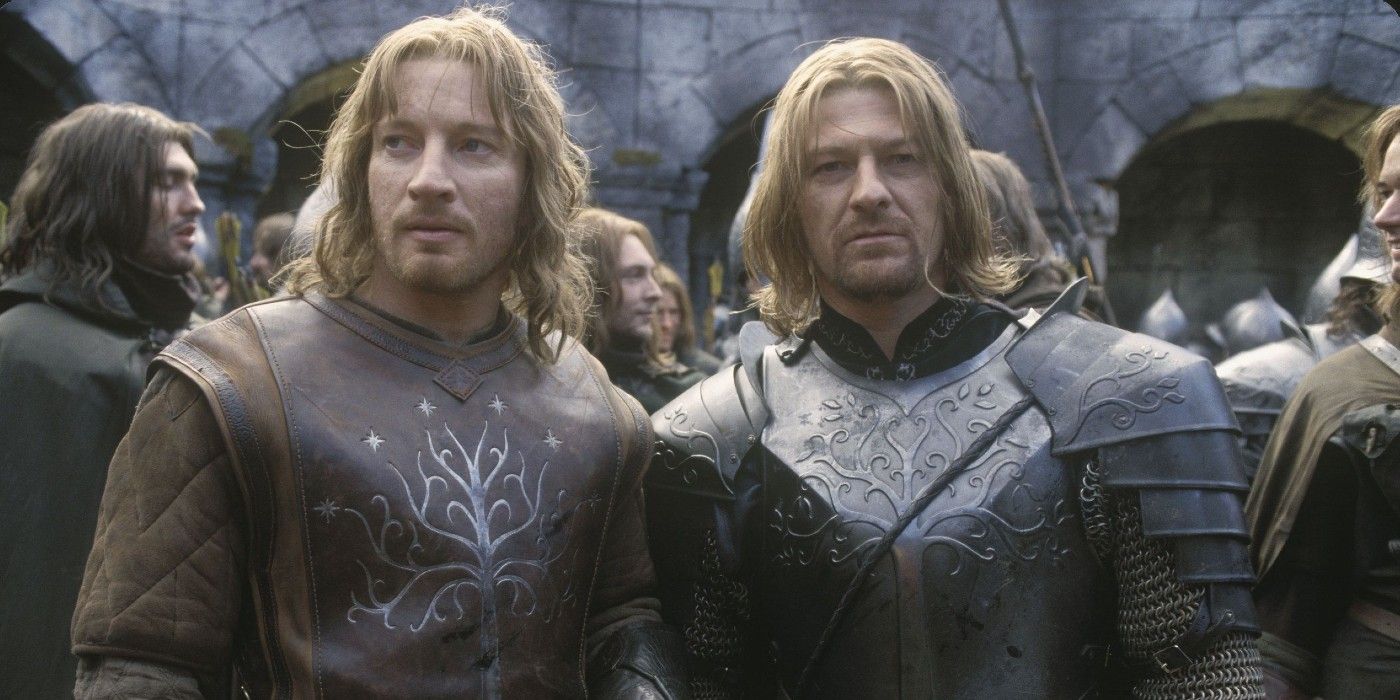
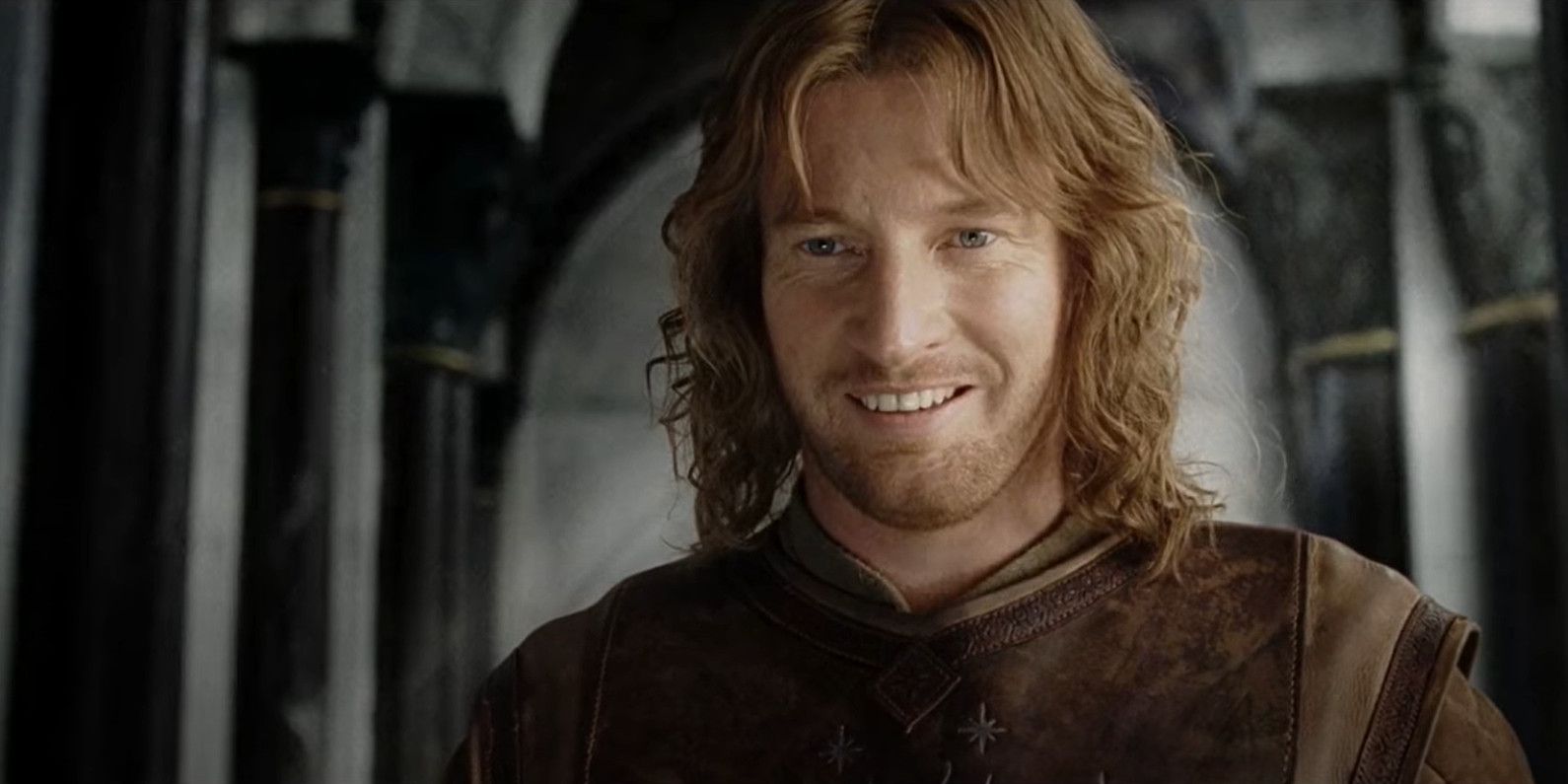
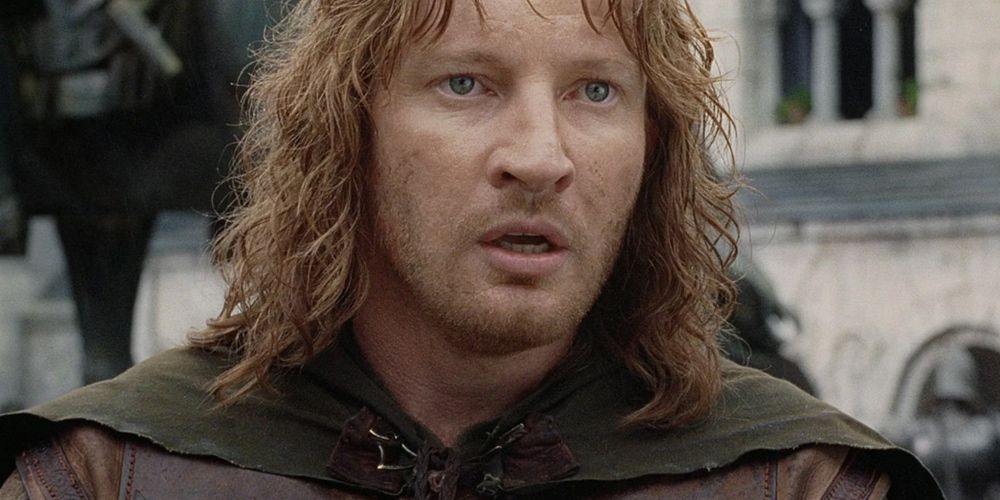
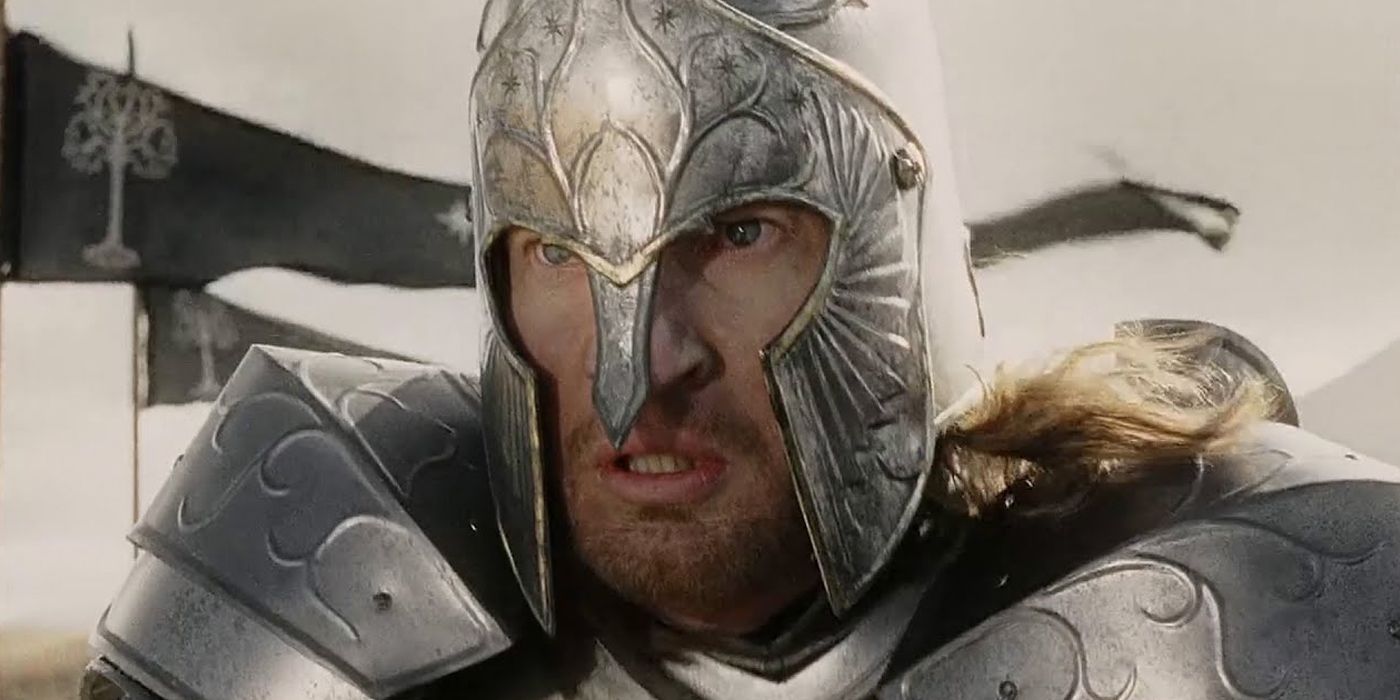
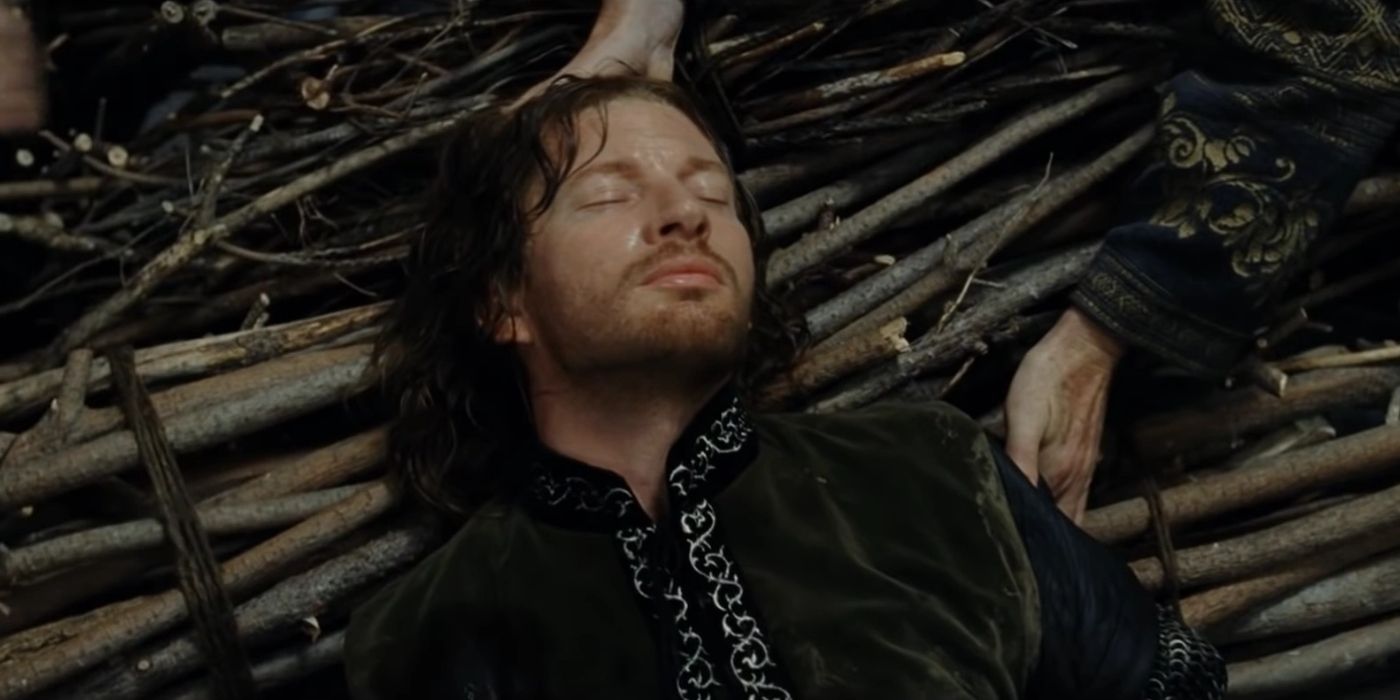






In the novel version of The Lord of the Rings, it was instead Sam who wondered these things about the dead soldier, and he did not speak his thoughts aloud.
Faramir first appeared in The Two Towers when Frodo and Sam witnessed him lead the Rangers of Ithilien in an ambush against a troop of Haradrim soldiers. After this fight, the Rangers discovered the hiding hobbits. Faramir suspected that they were spies for the forces of evil, so he decided to bring them back to the Rangers’ headquarters, Henneth Annûn, for questioning. The extended edition of the film added a scene that immediately established Faramir’s depth. As he looked upon the body of a fallen Haradrim, he began to speculate about the man’s life up to that point. He wondered whether he was evil and “what lies or threats” might have convinced him to follow the Dark Lord Sauron. Since Faramir was openly antagonistic towards Frodo and Sam, the trilogy’s heroes, this scene helped combat the audience’s natural assumption that he was a villain. He was an introspective person who did not enjoy bloodshed.
Once at Henneth Annûn, Faramir learned about Frodo’s true identity and his mission to destroy the One Ring. He wanted to bring Frodo to Gondor so that he could hand the One Ring over to Denethor; he called this “a chance for Faramir, Captain of Gondor, to show his quality.” That quote was more significant than it initially seemed, and it echoed throughout the rest of his character arc. In the extended edition, Faramir then experienced a flashback to a moment shortly before the events of the first film, The Lord of the Rings: The Fellowship of the Ring. He and Boromir were excitedly celebrating their reclamation of the city of Osgiliath from Sauron’s forces, but Denethor soon arrived to ruin the joyous moment. He credited Boromir alone for the victory, and when Boromir tried to point out how much his younger brother had helped, Denethor retorted that it was Faramir’s fault that Sauron was able to conquer Osgiliath to begin with. Denethor had learned about the Council of Elrond, and he wished to send a representative to Rivendell to ensure that the One Ring was used to Gondor’s benefit. Faramir offered to go, but Denethor scoffed, “A chance for Faramir, Captain of Gondor, to show his quality. I think not. I trust this mission only to your brother. The one who will not fail me.”
Faramir Nearly Died During the Siege of Minas Tirith
In the novel, Faramir used the phrase “a chance for Faramir, Captain of Gondor, to show his quality,” but Denethor did not.
Desperate for his father’s approval — and victory in the War of the Ring — Faramir brought Frodo and Sam to Osgiliath, which would soon be under siege once again. When a Nazgûl descended upon the city, Frodo fell into a trance. He tried to give the One Ring to the Nazgûl, and when Sam stopped him, Frodo flew into a violent rage. Sam was able to bring Frodo to his senses and give him hope by reminding him of the stories they had heard back in the Shire. This series of events caused a change of heart in Faramir. He witnessed the One Ring’s corruption firsthand and realized that it would not help Gondor. He also began to feel a kinship with the hobbits; they were good people who just wanted a swift end to the war, much like himself. He said, “I think at last we understand one another, Frodo Baggins.” He guided them out of the city, and before they parted ways, Sam told him, “You’ve shown your quality, sir: the very highest.” Sam was unaware of just how much this comment would mean to Faramir. Though it did not come from Denethor, he finally received some praise for doing the right thing.
In The Return of the King, Faramir returned to Minas Tirith, and Denethor scolded him for failing to secure the One Ring. Denethor scathingly added that Boromir would have done better and that he wished Faramir had died in his brother’s place. The extended edition included a conversation between Faramir and Pippin, which lent some insight into Denethor’s favoritism. Faramir said his brother and father were very similar: “proud, stubborn even, but strong.” Faramir had never been as good of a soldier, and though he had other talents, Denethor did not care about them. Pippin reassured Faramir that he had “a different kind” of strength. During the Siege of Minas Tirith, Denethor sent Faramir to reclaim Osgiliath once again, a mission that they were both certain would lead to Faramir’s death. Faramir sustained grievous wounds, riddled with arrows much like Boromir had been. His horse dragged his unconscious body back to Minas Tirith, causing Denethor to lose his last shreds of hope and sanity. He realized too late that he truly did care about his younger son. In his madness, he tried to burn himself and Faramir alive. Pippin and Gandalf saved Faramir from the flames, but Denethor perished.
Faramir Was Rewarded For His Perseverance
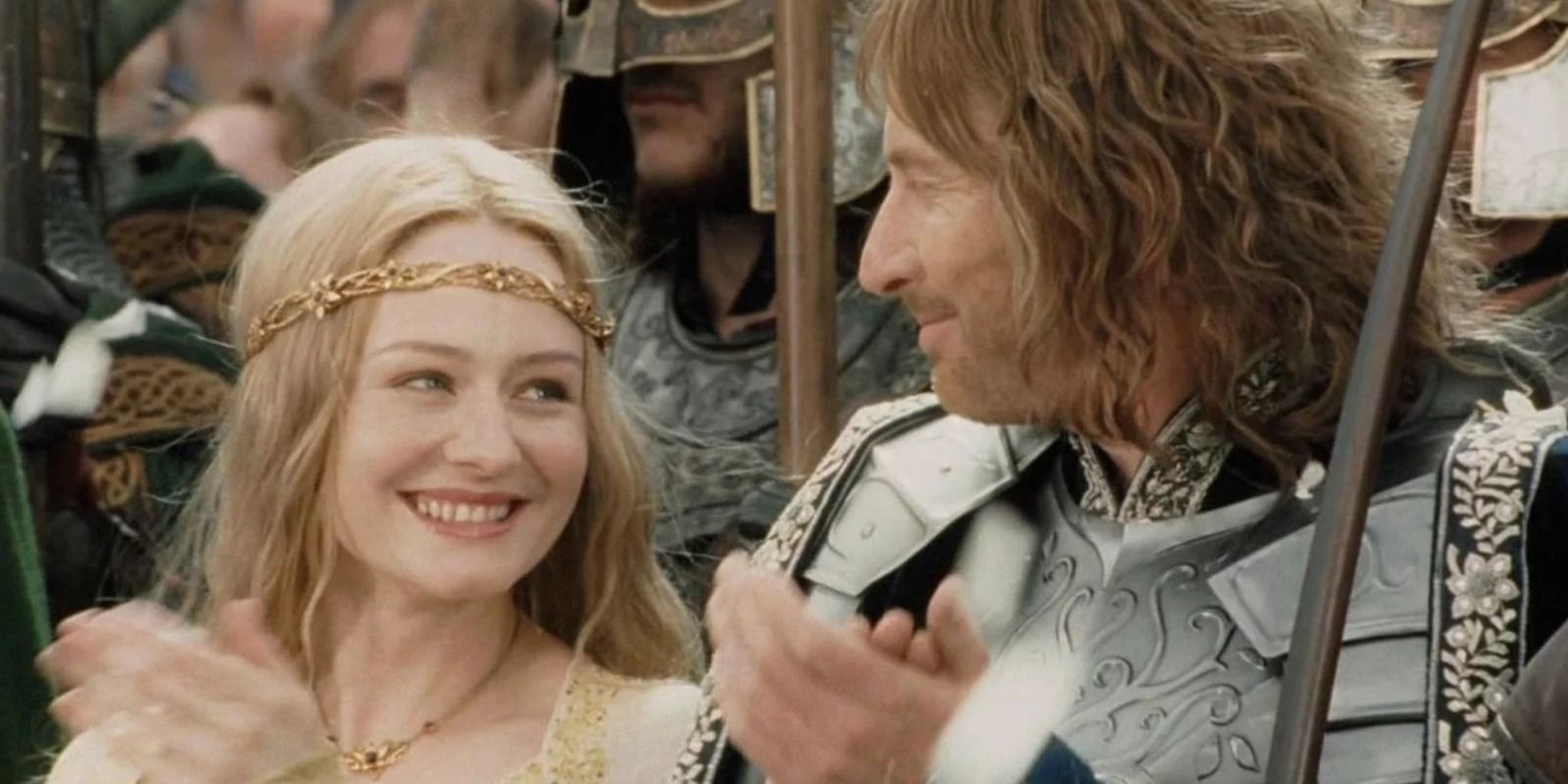
After all this tragedy, Faramir’s story had an unexpectedly happy conclusion. He recovered from his injuries in the Houses of Healing, where he met and fell in love with Éowyn. Unlike Denethor, she appreciated him for who he was. They stood together at Aragorn’s coronation, and a deleted scene would have shown them getting married. J. R. R. Tolkien’s The Lord of the Rings novel revealed even more about what happened to Faramir after the War of the Ring. He inherited the position of Steward of Gondor from his father, and he also became the Prince of Ithilien. He and Éowyn had a son named Elboron, and Faramir lived to the age of 120. In the chapter “The Window on the West” from The Two Towers, he tells Frodo, “I would see the White Tree in flower again in the courts of the kings, and the Silver Crown return, and Minas Tirith in peace: Minas Anor again as of old, full of light, high and fair, beautiful as a queen among other queens.” After Sauron’s defeat, he got his wish; Gondor prospered under Aragorn’s rule.
Faramir is one of the characters whom Jackson and his team changed most when adapting Tolkien’s writing for the silver screen. In the novel, he is a nearly flawless paragon of virtue. He did not bring Frodo to Osgiliath, and the One Ring did not tempt him in the slightest. In “The Window on the West,” he tells Frodo, “I would not take this thing if it lay by the highway. Not were Minas Tirith falling in ruin and I alone could save her.” Many fans of the novel were upset that the films turned Faramir into a more flawed character, one who nearly doomed Middle-earth just to earn his father’s affection. But as a result of this controversial change, his character arc grew stronger; in Tolkien’s version of the story, Faramir did not have much room to develop. In the film, he transformed, and his ultimate refusal to bring the One Ring to Denethor was a more powerful moment precisely because it was not an easy choice for him to make. The two versions of the characters served different roles in their respective narratives. Tolkien wanted an aspirational figure to whom readers could compare and contrast the likes of Aragorn, Boromir, and Denethor, while Jackson instead wanted a character whom the audience could watch change for the better over time.




